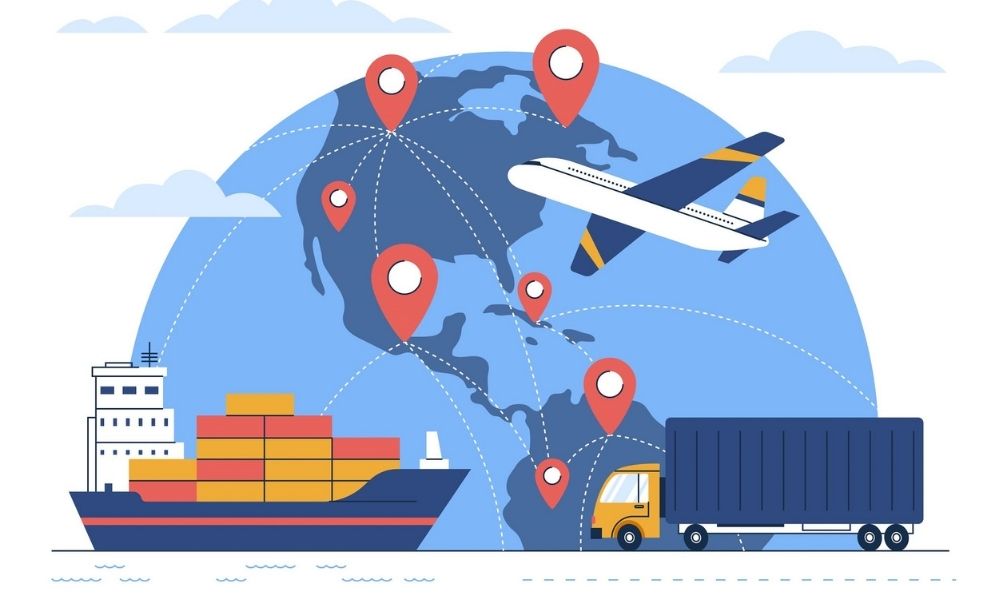Trade has been a fundamental aspect of human civilization since ancient times. From the Silk Road connecting Asia to Europe, to the spice trade between Europe and Asia, to the modern globalized economy, trade has played a crucial role in shaping the world we live in today. In simple terms, trade refers to the exchange of goods and services between individuals, businesses, and countries. It is a vital component of economic growth and development, and its benefits are far-reaching. In this article, we will explore the various benefits of trade and how it drives economic growth and development.
Contents
1. Increased Efficiency and Productivity
One of the primary benefits of trade is that it allows countries to specialize in producing goods and services that they have a comparative advantage in. This means that they can produce these goods and services at a lower opportunity cost compared to other countries. For example, a country like Brazil has a comparative advantage in producing coffee due to its favorable climate and geography. On the other hand, Japan has a comparative advantage in producing electronic goods due to its advanced technology and skilled workforce. By specializing in these goods, both countries can produce them more efficiently and at a lower cost, leading to increased productivity.
Read:What role can a crm play in effective martech stack?Specialization also allows countries to focus on producing goods and services that they are best at, rather than trying to produce everything themselves. This leads to a more efficient allocation of resources and higher overall productivity. As a result, trade can lead to an increase in the overall output of goods and services, also known as Gross Domestic Product (GDP).
2. Access to a Wider Variety of Goods and Services
Trade also allows countries to access a wider variety of goods and services that they may not be able to produce domestically. This is especially beneficial for countries that do not have the resources or technology to produce certain goods and services. For example, a country like Japan, which has limited land for agriculture, can import food from other countries to meet its domestic demand. Similarly, countries like the United States, which do not have a significant supply of oil, can import it from countries like Saudi Arabia.
Access to a wider variety of goods and services also leads to increased consumer choice and competition, which can drive down prices and improve the quality of goods and services. This benefits consumers by allowing them to purchase goods and services at lower prices and with better quality. It also benefits businesses by providing them with access to a larger market for their goods and services.
Read:What’s a key benefit of responsive display ads?3. Job Creation and Increased Employment
Trade can also lead to job creation and increased employment opportunities. When countries specialize in producing certain goods and services, they can export them to other countries, creating jobs in the exporting country. For example, the United States is a major exporter of agricultural products, which supports millions of jobs in the agricultural sector. Similarly, countries that import goods and services also create jobs in their domestic market. For instance, the United States imports a significant amount of electronic goods from countries like China, which supports jobs in the retail and distribution sectors.
Moreover, trade can also lead to the creation of new industries and businesses, which can provide employment opportunities for people. For example, the rise of e-commerce has created numerous job opportunities in the logistics and delivery sector. This not only benefits the individuals who are employed but also contributes to the overall economic growth of the country.
4. Increased Foreign Investment
Trade can also attract foreign investment, which can have a significant impact on a country’s economy. When countries engage in trade, they create a favorable environment for foreign investors to invest in their markets. This is because trade leads to increased economic growth, stability, and market access, making it an attractive destination for foreign investment.
Read:Which of these is a benefit of fish farming?Foreign investment can bring in new technology, expertise, and capital, which can help boost a country’s economic growth. It can also create jobs and stimulate domestic industries, leading to increased productivity and competitiveness. For example, China’s open trade policies have attracted significant foreign investment, which has played a crucial role in its economic growth and development over the past few decades.
5. Economic Growth and Development
Trade is a key driver of economic growth and development. It allows countries to access new markets, resources, and technology, which can help them develop their economies. As countries engage in trade, they can increase their GDP, create jobs, and improve the standard of living for their citizens.
Moreover, trade can also lead to the development of new industries and sectors, which can contribute to a country’s economic growth. For example, the rise of the technology sector in countries like India and China has been fueled by trade and foreign investment. This has not only contributed to their economic growth but has also helped them become global leaders in the technology industry.
6. Peace and Stability
Trade can also promote peace and stability between countries. When countries engage in trade, they become interdependent on each other, creating a mutual interest in maintaining peaceful relations. This is because any disruption in trade can have a significant impact on both countries’ economies. As a result, countries are more likely to resolve conflicts through peaceful means rather than resorting to war or other forms of aggression.
Moreover, trade can also lead to cultural exchange and understanding between countries, which can help promote peace and reduce tensions. For example, the exchange of goods and services can also lead to the exchange of ideas, values, and beliefs, which can help bridge cultural differences and promote mutual understanding.
Conclusion:
In conclusion, trade has numerous benefits that contribute to economic growth and development. It allows countries to specialize in producing goods and services, access a wider variety of goods and services, create jobs and employment opportunities, attract foreign investment, and promote peace and stability. As the world becomes increasingly interconnected, trade will continue to play a crucial role in shaping the global economy and driving economic growth and development.
Moreover, it is essential for countries to engage in fair and mutually beneficial trade practices to ensure that these benefits are shared among all countries. By promoting free and open trade, countries can create a more prosperous and interconnected world for future generations.








